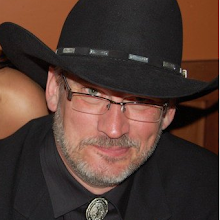… would smell as sweet.” – Juliet (Romeo and Juliet, Act 2, Scene 2)
If you look back through history at various mystical or metaphysical belief systems (Pagan, Wiccan, Druid, etc.) you find an interesting common belief: all things, visible and invisible, have 2 names:
- The name everyone knows that thing by (rock, tree, wind, sky, etc.)
- The “secret” name known only to that thing and the supreme deity.
It’s the secret name (the “name of power”) that interested early mystics, as they believed that once you learned a thing’s secret name, you had total control over the thing. Another example would be knowing the “secret name of God”, and the power that knowledge afforded those who knew that name.
As a species, we’ve carried that belief forward to this day. Look around you:
- The words “new and improved” seem to magically make products better.
- How often have you found yourself in a discussion where the phrase “I wouldn’t use that term …” has come up?
- Doesn’t “pro-life vs. pro-choice” imply that “pro-choice” is “anti-life” (since it’s on the opposite end of the argument?
- We have no more handicapped, only “differently abled”.
- It’s Windows XP … no Windows 2009 … no Windows 7 … no Windows internal version 6.1 …
In other words (quoting a colleague), “Names is important”. Hold on to that thought as we fast forward to back to the present and current political events.
Newt Gingrich got another 15 minutes in the spot light when he called Supreme Court nominee Sonia Sotomayor “racist” (or since she’s Hispanic, a “reverse racist”). He’s since recanted the use of the “R word” but still clings to his fear that her decisions, should she join the highest court in the land, could very well be biased because of her ethnic background (and an ill-played attempt at humor).
While the media (and the GOP, and the DFL, and anyone else who thinks they’re opinion is important to the mass public …) are all having a field day analyzing and speculating, and pointing and counter-pointing, we’re overlooking an important point here: Newt’s opinion of her has not changed … just the term he’d (publicly) use to describe it. Stop and think about that for a moment, and ask yourself the following question:
“Which is more important: The word or it’s definition?”
Many may argue that the word itself is the key. All we have to do is eradicate (or replace) the word and we’ve solved the problem (at least, that’s what Newt seems to be saying). Sound familiar? It should. as it’s the philosophy driving the “politically correct” movement.
George Carlin was a great student of language, repeatedly putting our use of English under his comedic microscope. More than once he opined that words by themselves are just words, having neither innate good nor evil. It’s the associations we tie to them that render them bad or inappropriate. Sadly, we’ve become so wrapped up in the words themselves, we completely ignore the definition that drives them.
So, to say “Sotomayor is not racist” but she could render ethnically-biased opinions is call her potentially racist without every using the word. And, somehow to Newt, that’s alright: don’t use the word and the problem goes away. Idiot.
Looking at it another way, isn’t the act of insinuating that someone could be biased because of their racial background an act of racism itself? In order to make that statement, aren’t you assuming that (since they are of a different race than you) they aren’t as unbiased as you (and your race)?
Perhaps I was wrong, but I thought we were getting away from the “because you don’t think the way I do, you’re un-American, evil, and dangerous” mindset of the last 8 years.





